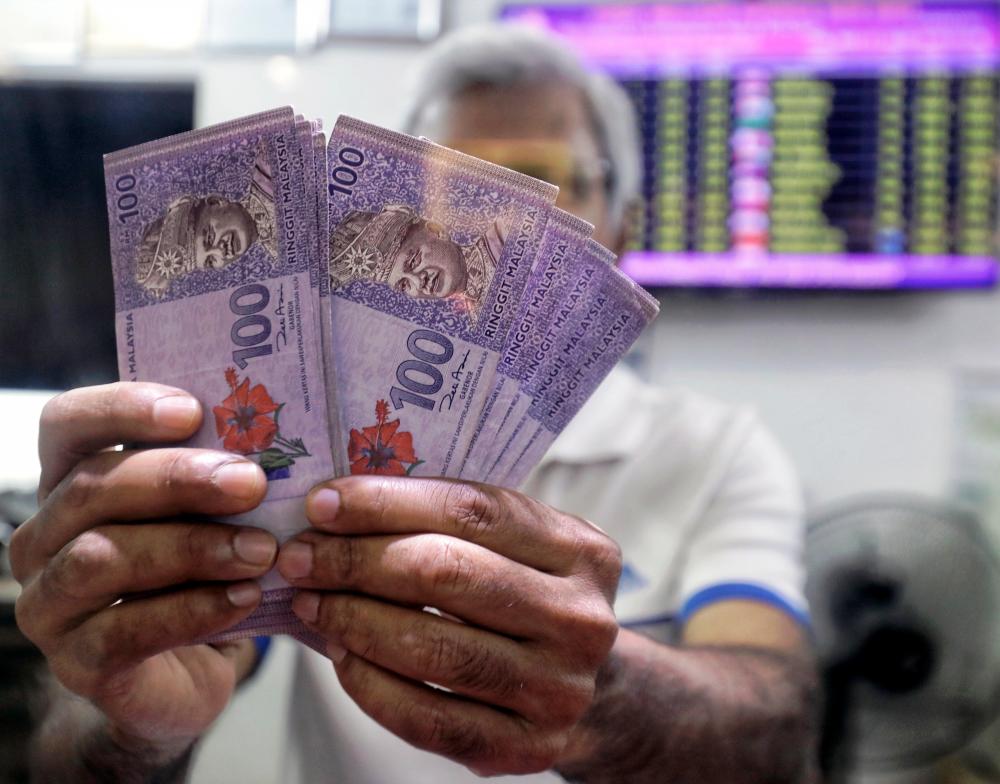PETALING JAYA: The ringgit’s current weakness is not due to economic fundamentals but caused by external factors such as Western countries, especially the US, raising interest rates to deal with inflationary pressures.
Universiti Utara Malaysia economics professor Dr K. Kuperan Viswanathan said the amount of remittances made by foreign workers may also contribute to the weakening of the ringgit.
The country currently has some five million foreign workers – three million Indonesians and two million Bangladeshis – sending money home each month.
Kuperan said such remittances represent a continuous outflow of currency, which weakens the ringgit since there is no major inflow of money from such countries.
“Employers continue to rely on foreign workers to keep costs low. But these workers don’t contribute much to the economy. The country needs to end its reliance on cheap labour by upscaling. This will reduce currency outflow.
“There are also thousands of Malaysians studying abroad who are regularly sent money. Adding to this is the fact that many people are buying foreign currencies. These two issues further contribute to the weakening of the ringgit.”
Kuperan said while economic growth used to be around 6% to 8%, which made the ringgit stronger, it is presently at a low of 4%, but still better than in most countries.
He said as a whole, Malaysia’s economic fundamentals are good as interest rates are low and inflation has fallen.
This is despite a drastic fall in the number of foreign students, who were major contributors to currency inflow. But post-Covid-19 and despite the lifting of travel restrictions, foreign student numbers remain poor.
Kuperan said although it is still manageable, the consistent budget deficit over the years has played its part in weakening the ringgit.
He said on the bright side, once the economy reverts to its previous healthy growth levels, the ringgit will automatically strengthen, and issues revolving around the weak ringgit will be resolved.
“Malaysia is lucky in that exports are higher than imports. But for the moment, it is not reflected in the value of the ringgit, which is weak against major world currencies.
“Nonetheless, this will not last too long, and once interest rates worldwide start falling, the ringgit will strengthen.”
Sunway University economics professor Dr Yeah Kim Leng said as long as US inflation remains high, its Federal Reserve might increase interest rate once or twice more.
He said that will contribute to the outflow of funds because investors will continue to chase after short-term gains and profits from the US dollar.
“The outflow of funds will have an impact on the exchange rate and will lead to a weaker ringgit. The other contributing factor is Malaysia’s trade exposure to China, whose economy is slowing down and causing the renminbi to weaken. This also has an unfavourable impact on the ringgit.
“Commodities, which are one of our biggest exports, have seen prices ease as demand has weakened. There has also been a drop in oil and gas prices, and all these issues have added up to harm
the ringgit.”
Yeah said the upcoming elections in six states have also paused foreign and local investments as investors are holding back as they wait for the election results, although the polls have no bearing on the federal government’s power to rule the country.
He said on a positive note, the current weak ringgit is likely to grow Malaysia’s trade surplus and benefit the country by contributing to a higher economic growth rate, which will ultimately offset the low value of the ringgit.









